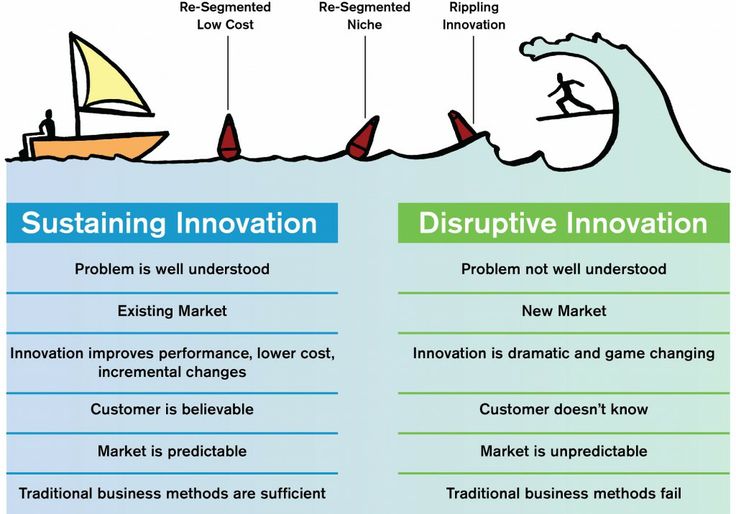The Beginner’s Guide to The Next Disruptive Innovation for Businesses
Are you disrupting your business? Many instances of industry shakers and shakers spring to mind while discussing movers and shakers. So much excitement has been generated about disruptive innovation that it’s difficult to understand what it means.
The term “disruptive innovation” may signify different things to different industries within Chester. If you don’t know what disruption is, how can you give it significance to your brand? Are disruptive innovations worth your time? Is it an issue if your company isn’t upending the established order? Isn’t it possible that not every achievement necessitates disruption?

Benefits of Disruption:
Is it beneficial to your business to be disrupted? Neither the market nor any other external influences determine the answer to this query. It all boils down to how the company’s top executives think. The company will benefit if the leadership can promptly respond to another disruptive firm by seeing an opportunity for disruption.
• Enhanced quickness and dexterity. Disruptive technology businesses are well-known for their adaptability, agility, and ingenuity. They are better equipped for the future because of their flat organizational structures and lack of hierarchy. Companies that embrace the concept of disruption will reap the same rewards.
• More prospects for advancement. In the search for disruption, you’re likely to find growth prospects as well. These new sales channels, markets, or products don’t qualify as genuinely disruptive innovations. They can help you grow your business and generate more money.
• Increased consumer satisfaction. Any company’s ultimate objective should be to cultivate a following of devoted clients. Both potential disruption and a more contented client base may be found by listening to your consumers.
Disruption Examples:
Think of Netflix as an example of how a company may be disrupted. Blockbuster dismissed Netflix as unimportant when it first launched. When DVDs are available at the shop, why would anyone wait for them to arrive in the mail? When it comes to home entertainment, Blockbuster failed to see how streaming would become the next step, eventually leading to the company’s demise. Blockbuster continues to rely on DVD-renting clients instead of recognizing the tastes of the next generation.
How to Leverage Business Disruption?
Disruption demands an active plan to go from where you are now to where you want to be. Creating a disruption strategy, as a result, you’re more likely to achieve your goal of upsetting the apple cart. Preparing for and profiting from disruptive forces is easier when you have a strategy in place.
1. Determine Your X Factor
How can a brand disrupt the business? Is there a formula for bringing about disruptive change?
The maxim “disrupt or be disrupted” is a fallacy. Debating whether Tesla Motors or Apple fit the disruptive model or not misses the point in many aspects. In the end, what counts most is making your consumers lifetime fanatics rather than disrupting the market.
Using Artificial Intelligence, for example, may help you uncover new and better methods to engage and keep your consumers happy (AI). Because it has been in widespread usage for decades, artificial intelligence (AI) may not be considered a disruptive force in the corporate world.
No matter how disruptive this technology may be to your business, it may still be a helpful tool for connecting with your customers and growing your company’s revenue. Who cares if it disrupts business when you think of it that way? Achieving success is the goal of most business owners, and it’s something to be desired by everybody.
2. Learn How to Spot Business Disruption
What is the root reason for a company’s downtime? Businesses along Chester that are too big and too rigid tend to be prime targets for disruption. These businesses have been established for a long time and believe that they have a monopoly on the market. As a result, they are open to being disrupted by companies that deliver more value than they do. This is a mistake.
If you don’t keep up with industry changes, you’ll fall behind the competition. Technology advancements, market adjustments, and alterations in client preferences are all examples of this. Avoid getting interrupted by keeping an eye on your competitors and remaining flexible and open-minded to new possibilities.
3. Practice Self-Disruption
Innovative disruption is a high stakes game with high risk and great rewards, says Alison Coleman in Forbes. Identifying the winning disruptive possibilities may be challenging because disruptive ideas need the participation of other actors in the ecosystem.
4. Take the risk of upsetting your own brand’s equilibrium.
Only by continually modifying your offering to remain relevant can you avoid being disrupted by the competition. Apple’s long-term growth strategy is based on disruption, according to Forbes. Apple’s commercial disorder, the iPhone, which earned $18 billion in revenue, caused a $345 million decline in iPod sales for the corporation. Contact Chester Apps for more guidance on disruptive innovation.
